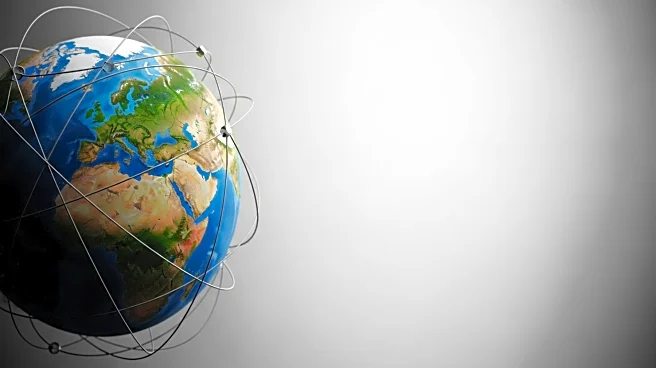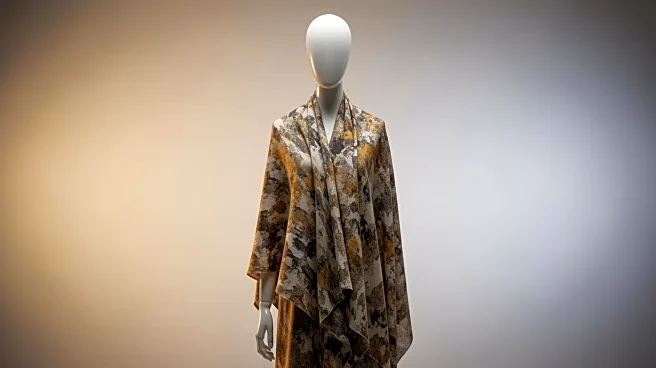What's Happening?
The European Union has reimposed sanctions on Iran that were previously lifted under the 2015 Joint Comprehensive Plan of Action (JCPOA). This decision follows the United Nations Security Council's reimposition of snapback sanctions on Iran. The EU's measures include freezing assets of Iranian banks, banning the import of Iranian oil, and restricting the export of technologies that could be used for uranium enrichment. These sanctions target key Iranian economic institutions, such as the Khatam ol Anbia Construction Headquarters, which is controlled by the Islamic Revolutionary Guards Corps (IRGC). The sanctions aim to politically and economically isolate Iran due to its failure to meet JCPOA obligations.
Why It's Important?
The reimposition of EU sanctions on Iran is a significant development in international relations, as it underscores the ongoing tensions over Iran's nuclear program and its compliance with international agreements. These sanctions could further isolate Iran from global financial networks and reduce trade volumes between the EU and Iran, impacting Iran's economy. The move reflects the EU's alignment with the UN's stance on Iran and highlights the challenges in diplomatic negotiations with Tehran. The sanctions may also influence Iran's domestic policies and its approach to international partnerships, particularly with countries in the Global South and those aligned with its 'Look East' policy.
What's Next?
Iran is likely to seek alternative trade routes and financial channels to mitigate the impact of Western sanctions. The Iranian regime may focus on strengthening ties with neighboring countries and multilateral institutions like BRICS and the Shanghai Cooperation Organization. Internally, Iran may face economic unrest due to rising inflation and currency devaluation, which could lead to public protests. The regime's response to potential unrest and its strategies to counteract the sanctions will be closely watched by international observers.
Beyond the Headlines
The sanctions highlight the broader geopolitical struggle between Western powers and Iran, with implications for regional stability in the Middle East. Iran's efforts to circumvent sanctions through alliances with countries like China and Russia may shift economic and political dynamics in the region. The situation also raises questions about the effectiveness of sanctions as a tool for international diplomacy and their impact on civilian populations.










